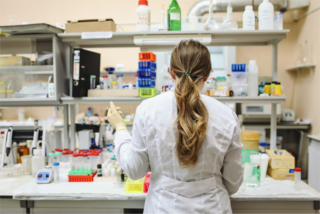
More Family/Primary Care Articles
Tips For Running A Medical Lab

A medical lab provides customers with diagnostic testing services to determine the origin of sickness and the physical changes brought on by disease symptoms. The information is crucial for diagnosing and treating diseases, including diabetes, heart disease, and cancer. The customers can be patients, researchers, and other healthcare professionals.
Given the nature of the work, running a lab requires a high level of skill to ensure accurate results and good customer service. If you’re working in a medical lab and wish to ensure seamless operations, here’s what you need to know:
- Determine your niche
There are numerous types of medical testing available. You will be better positioned to compete with other laboratories if you concentrate on a particular niche. Establishing a comprehensive testing facility would be nearly impossible because each type’s equipment would differ.
If you concentrate on one aspect of testing, you can distinguish yourself as the lab best suited for that type of testing. For example, you could operate a lab that only performs drug testing for companies’ employees or a lab that focuses on research work. Having a niche would allow you to market your services better and attract the right type of customers.
- Keep track of data
Manual labor will stress your team if you don’t have a proper management system in your lab. Therefore, invest in and use a lab information system to ensure operations are carried out successfully and data is moved smoothly from the point of order to the final report.
Each week, a busy medical lab may see hundreds of patients. Arranging the data can be challenging, but a library information system (LIS) does that precisely. This data must be kept structured for a medical laboratory to function properly. An LIS makes this possible.
- Keep an eye on your expenses
If you want to reduce your expenses, keep track of all your costs. Make a list of all the overhead expenses, salaries, supplies, equipment, and any applicable licensing for the lab. This will make it easier to see where your money is going and areas where spending is noticeably greater. This frequently reveals areas where expenses can be reduced.
Keeping your lab’s budget in check is essential to a successful business. You can use budgeting apps to help you keep track of your expenses.
- Understand the relevant laws and regulations
Certifications and regulations governing laboratory operations ensure quality control by allowing trusted third parties to assess and certify your laboratory’s ability to perform tests with accuracy and safety. This helps you build a favorable reputation in the market. A good reputation also means customers can trust and count on your lab for their needs.
You must abide by the specific regulations that apply to your lab because the medical services sector is highly regulated. The Centers for Medicare & Medicaid Services (CMS) oversee medical testing. They must guarantee the safety of lab testing and the dependability and accuracy of your lab. Be ready for a lot of paperwork and inspections to be completed before you can open for business.
- Keep an eye on your management and hiring tasks
Like any business, you must be aware of the legal requirements governing your rights and duties as an employer. Employee-employer relationships are governed by federal and state regulations, including the Fair Labor Standards Act, the Americans with Disabilities Act, and the Family Medical Leave Act. The lab personnel you select should have expertise and experience in the area you are concentrating on. Delegate supervision and training responsibilities to avoid liability for careless or poorly trained staff who may cause harm.
For successful business operations, appoint qualified individuals to leadership positions. Hiring capable management staff is a good strategy to guarantee your lab is always compliant. They will be in the best position to guarantee lab quality control, accuracy, and adherence.
- Get proper insurance
Ensure you don’t overlook insurance when calculating the start-up money you’ll require. You must have insurance to cover liabilities like negligence, mistakes, or omissions. Although you may have clear guidelines for your staff to follow, things may still go wrong, and insurance can cover you.
Additionally, you’ll require premises insurance to safeguard you from any harm an employee may have while on the job. Workplace accidents are widespread, and laboratories are particularly delicate environments.
- Keep proper maintenance
Appropriately maintaining the lab infrastructure is one of the most important components of running your lab. It guarantees the integrity of your lab supplies, including samples and reagents. You must store liquid nitrogen tanks, keep laboratory refrigerators at the proper temperature, and balance the CO2/O2 levels in each incubator.
Regularly cleaning your laboratory will help you avoid contamination. Additionally, constantly apply UV to your biosafety cabinet and maintain full water tanks in restrooms.
Conclusion
A medical lab business can be highly profitable if you go about it right. The market is thriving because of the increased demand for better healthcare services, and medical testing and research is integral to that. Use the above tips to run and maintain a medical lab you work at or plan to launch.
Other Articles You May Find of Interest...
- Top 6 Tips to Prepare for Your Family Nurse Practitioner Certification Exam
- Choosing the Right Primary Care Doctor: Your Guide to Better Health
- Strategies for Maintaining Adequate Hydration Throughout the Day
- Advantages of NEBOSH Compared to Other Health and Safety Qualifications
- Nine Tips for Nurses to Advance Their Skills and Expertise
- Why Do Companies Use Worker Hair Drug Tests?
- How Obtained Data from Healthcare Breaches is Used

















